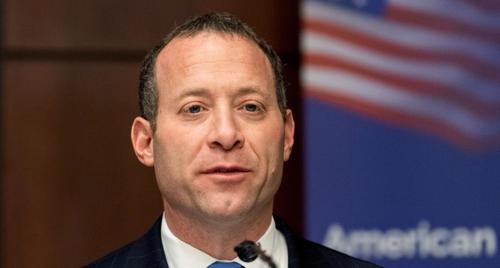House Problem Solver’s Caucus Pushes $768 Billion Infrastructure Compromise
Could President Biden’s push to pass the first part of his “Build Back Better” ‘Great Society’-style scheme be any more disorganized?
Last night, Bloomberg reported that talks between President Biden and Sen. Shelly Capito, the lead GOP negotiator had collapsed over deep disagreements over what constitutes “infrastructure”. Biden has been trying to push his climate agenda via the legislation, something Republicans have resisted. After talks fell apart, a handful of senators were said to be in negotiations.
And on Wednesday morning, Bloomberg reported that a different bipartisan group of lawmakers, comprising Democratic and Republican members of the House “Problem Solver’s Conference,” had managed to keep alive hope for a deal by coming together to back some $761.8 billion in new spending over eight years.
Together with the $487.2 billion of spending likely to be approved via Biden’s budget, this would bring the total to $1.2 trillion, while President Biden has pushed for a $1.7 trillion package.
The Republican and Democratic co-chairs of the Problem Solvers, which is made up of 58 centrist House members, met with White House National Economic Council Director Brian Deese late Tuesday about their efforts. One of the co-chairs, Josh Gottheimer, a New Jersey Democrat and frequent CNBC commentator, is also working closely with Senators Bill Cassidy and Kyrsten Sinema. The other co-chair, Republican Brian Fitzpatrick, is reportedly also involved in talks with other lawmakers.
The draft proposal by the Problem Solvers, according to the House aide, would designate $959 billion over eight years to transportation, including $518 billion for highways, roads and safety; $64 billion for bridge investment; $155 billion for transit, $25 billion for electric vehicle infrastructure; $120 billion for Amtrak passenger rail; $41 billion for airports; and $25 billion for waterways and ports.
Some $90 billion would go to “asset neutral” investments, such as multi-model large investments.
And $200 billion would be steered to energy, water, telecom and veterans housing, including $45 billion for broadband, $25 billion for electric grid and other green energy, and $14 billion for water storage in the West, added the aide, who was granted anonymity to discuss the plan.
As White House Press Secretary Jen Psaki reminded reporters during Tuesday’s press conference, Biden is leaving Wednesday for his first trip abroad since taking office. While Biden focuses on plugging the new G-7 corporate tax deal, expect the various groups of lawmakers engaged in semi-sanctioned “talks” to keep leaking details about their progress. Though whether any of this will actually succeed in moving the needle toward a deal remains to be seen.
So far, at least, the only bipartisan support seen in Washington lately was in the Senate, which yesterday passed a bill to help the US counter and compete with China.
Tyler Durden
Wed, 06/09/2021 – 07:00
via ZeroHedge News https://ift.tt/3zcnkQU Tyler Durden
